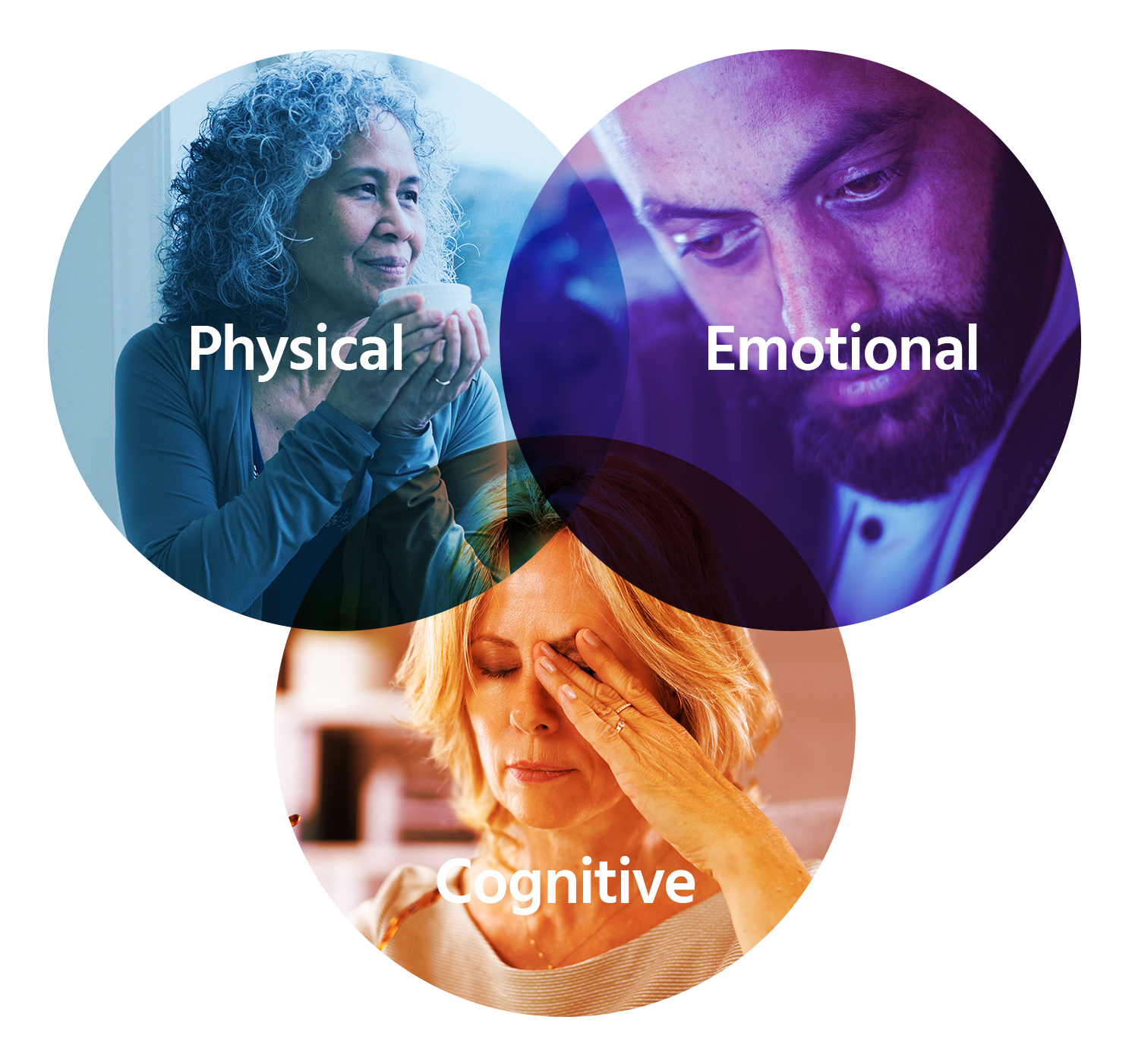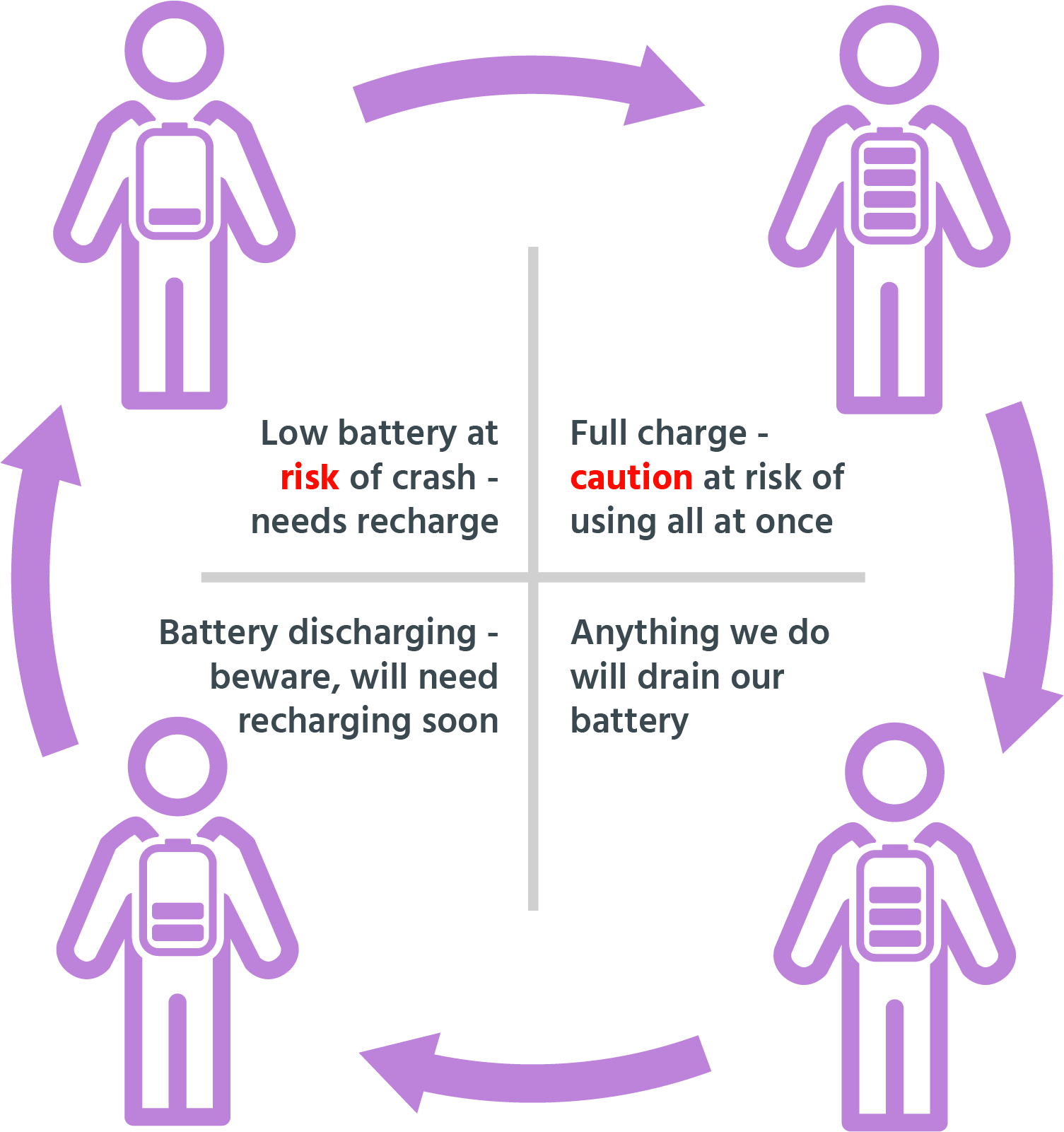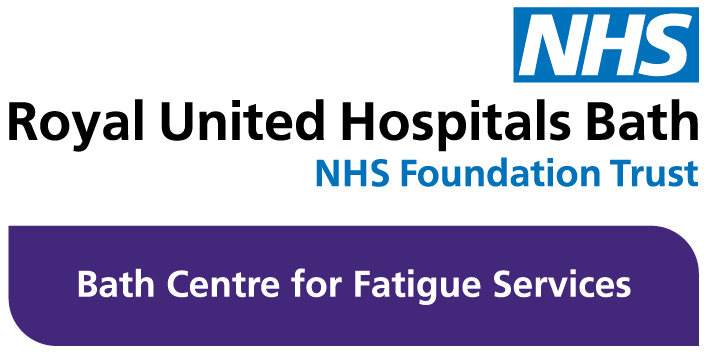Fatigue and Cancer
Fatigue is one of the commonest consequences of having cancer. Managing your energy levels is therefore key to the way you cope with treatment and your day to day life. It is not well understood but fatigue can fall into three types all of which are interlinked and impact on each other:

Fatigue: 3 types
1. Physical
2. Emotional
3. Cognitive - the way you concentrate
Your personal energy levels can be likened to that of a battery, if you use too much, you'll feel flat. We want you to work with your energy levels and use your energies in the best way possible. This will help you to feel more in control and have some choice over the way you live your life.
How can fatigue management help you?
Using your precious energy reserves for positive gain is really important. Often we waste energy worrying unnecessarily, we try to overcompensate, trying to keep up with everyone else when our energy reserves are low. We can feel that we are suddenly unable to expend the same energy, whether this is playing with your kids or grandchildren; Keeping up on a group walk, climbing the stairs, being unable to think straight the way we used to or experiencing feeling emotionally exhausted with dealing with day to day life.
It is important that we find ways to manage our energy levels, and not to feel guilty that we are going through a change in the way our body works with and for us.
We need to 'work smarter' with our personal battery. Working out the energy availability and dumping unnecessary stress and strain on ourselves can keep us going; and enjoy life and the activities in which we engage.
When energy levels are compromised we tend to overdo things on what we consider are our ‘good days’ which can then lead to a crash in energy levels on subsequent days. This is what we call a ‘boom and bust’ type of activity pattern and leads to feelings of being out of control and entering a vicious cycle of over activity and under activity perpetuated by our habits.
Exploring my personal battery

- Be mindful of the 3 different types of fatigue - you may experience all 3.
- Everyone will experience fatigue differently.
- Fatigue maybe experienced before, during and after diagnosis.
- Fatigue is one of the commonest consequences of having cancer and associated treatments.
How to access support
If you are experiencing fatigue Macmillan’s ‘Coping with Fatigue’ booklet can either be downloaded or you can order a hard copy to be sent to you free of charge.
‘How to access local support’
Your local cancer centre may offer support to manage cancer related fatigue.
- Occupational therapists can help you to manage your energy levels and provide support around returning to work
- Psychologists can work with you to manage the psychological impact of fatigue
- Dietitians can help you to improve your energy levels through nutrition
- and physiotherapists can support you to exercise to reduce fatigue.
Contact your Cancer Nurse Specialist or Cancer Information Centre to find out what is available in your area.
How to access specialist support
- Bath Centre for Fatigue Services is a national service providing personalised specialist support for adults experiencing long-standing fatigue linked to a variety of illnesses, serving the whole country.
- If you think this service maybe be useful to you, look how to access this service via the following link: referrals page.
- The purpose of this service is to enable you to regain a sense of control over your day-to-day life.
- Referrals can be made by you, your GP, or a member of your Cancer Team.
What is offered?
- Individual tailored assessment to establish your needs.
- A treatment plan, jointly agreed with you and a copy provided for you.
- Based on best practice principles, services are delivered by a team of highly skilled health professionals.
- This service provides help for you to better manage your health related needs, including advice and support with employment related issues.
- Liaison and signposting with other services to compliment addressing your needs as necessary.





